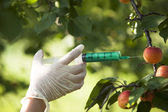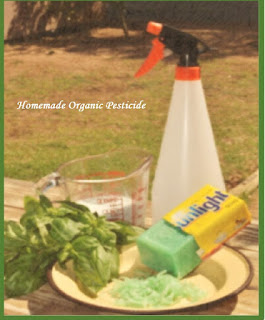The rising pressure and populations and
with it demand for food productions goes hand in hand. Farmers remain at a helpless
position always for they require not just meeting the rising food demand but
maintaining the quality standard of foods produced. Usage of chemical
fertilizer and pesticides may help meet the production unit with minimal
wastage but it depletes the quality of soil and food produced. For the
prosperity of human being, sustainable farming methods are need of the hour
along with practicing eco friendly agricultural methods.
 |
| Organic Pesticide |
Protection of crops can help harvest
maximum quantity of crops produce. To counteract degradation of soil from
continuous tilling of soil, use of bio fertilizer
and bio pesticide is
highly important. Use of natural pesticides is fast increasing as it is-
- Safer for environment
- Does not leave behind toxic residue
- Retains ability to multiply in target cells
- Specific to host
- Cross resistance does not arise
- Incorporates conventional technique for agriculture
- Offers permanent pest control therapy
Agricultural products manufactures and in
house experts run a great deal in providing valuable and most effective
knowledge about product utility. Companies such as Suraj
Shree Chemicals Ltd are a premium agro based company helping farmers of
India for the last 40 years. The company is a proponent of offering organic
based solutions for agriculture such as utility of organic pesticides over chemical pesticides. This is predominantly
why the company manufactures all animal
feed section and agricultural products that come in the line of
natural based products.
Farmers need to apply natural products on
agriculture and cattle as it does not instigate additives in food, chemicals on
soil, trigger water and air pollution. Nature balance has been widely disturbed
due to lack of proper knowledge on effective agricultural methods. The beneficial bugs have totally diminished
due to use of chemical pesticides and to make the matter worse harmful bugs
have gained resistance power to common pesticides. Hence, sustainable
agriculture can be propelled further with the application of natural products
and methods over use and dependence on synthetic solutions.

